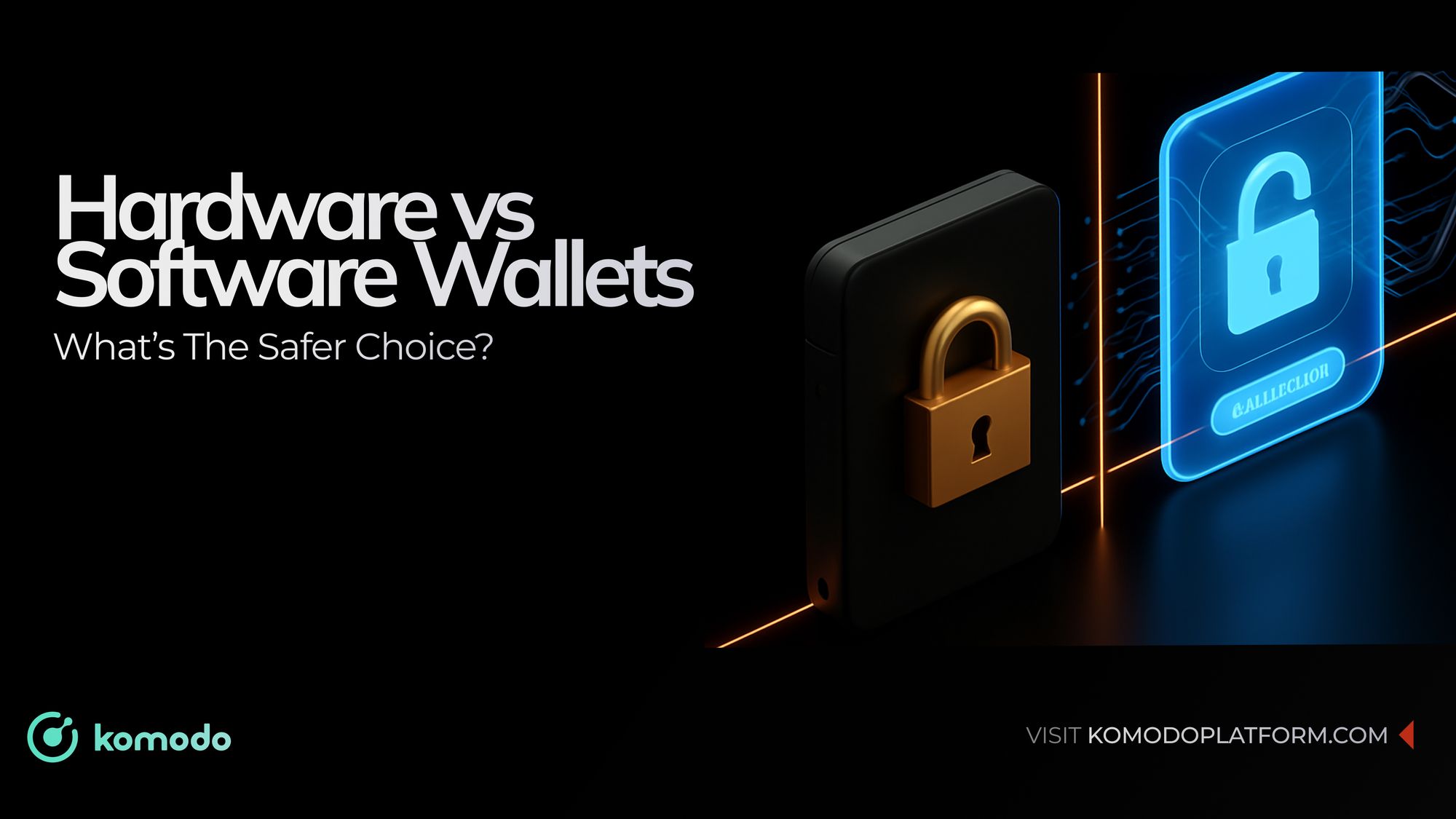Managing cryptocurrency safely is more important than ever. A crypto wallet keeps your digital assets secure and accessible. As crypto use grows, choosing the right type of wallet matters. This article explains the differences between hardware and software wallets, their benefits, and helps you decide which fits your needs.
What is a Hardware Wallet?
A hardware wallet is a physical device that stores private keys offline. This keeps your crypto safe from online threats like hacking and malware. Using it requires connecting the device to a computer or phone, which makes daily transactions slower but protects large amounts of crypto for long-term holding.
Benefits of Hardware Wallets
Hardware wallets are often considered the most secure option for cryptocurrency storage due to their offline nature. Below are the key benefits of hardware wallets for users looking for long-term, secure storage of their assets.
- Keeps private keys offline, protecting against online attacks.
- Gives you full control over private keys without third parties.
- Best for storing large crypto holdings over time.
- Private keys stay hidden from the internet during transactions.
- Supports secure recovery through seed phrases if lost.
What is a Software Wallet?
A software wallet stores keys digitally via a mobile app, desktop program, or browser. It offers fast access for trading or payments but connects to the internet, making it open to certain risks. Despite this, many use software wallets for quick and frequent crypto management.
Benefits of Software Wallets
Software wallets offer users a high level of convenience and accessibility. They are perfect for individuals who need quick access to their funds for frequent transactions and trading. Here are the main benefits of using software wallets.
- Fast access for everyday payments and trading
- Usually free or low cost, accessible for anyone
- Available on multiple devices anytime, anywhere
- Simple interfaces work well for beginners
- Good for instant transfers and active trading
What to Consider When Choosing a Crypto Wallet
When choosing a crypto wallet, understanding the differences between hardware and software wallets is essential. Each type offers unique advantages depending on your priorities like security, transaction speed, and ease of use.
Comparing Security Features
Hardware wallets offer cold storage, meaning that the private keys are stored offline and are immune to online attacks. This makes hardware wallets highly secure, especially for long-term storage of large amounts of crypto.
On the other hand, software wallets are hot wallets, meaning they are connected to the internet. This makes them more convenient but also exposes them to online threats, including malware, phishing, and hacking attempts. While software wallets can be secured with encryption, passwords, and multi-factor authentication (MFA), they are generally considered less secure than hardware wallets for long-term storage.
Quick Trading or Secure Holding?
One of the most significant advantages of software wallets is speed and convenience. They allow you to send, receive, and trade cryptocurrencies almost instantly. This also makes them ideal for exploring native trading features on decentralized exchanges, where you can swap assets directly without middlemen.
Hardware wallets require you to physically connect the device to a computer or mobile phone to authorize transactions, making them slower and less convenient for quick exchanges. However, this slower process is a trade-off for better security.
Which Wallet is Better for Different Users?
The best wallet for you depends on your individual needs and how you use your cryptocurrency. Whether you're a beginner, an advanced user, or someone who trades frequently, the following breakdown will help you decide which wallet suits your lifestyle:
For Beginners
Software wallets are perfect for beginners due to their ease of use and instant access. They are ideal for users who want to get started with cryptocurrencies quickly and without complications.
For Advanced Users/Heavy Investors
Hardware wallets are the best choice for those who have large crypto holdings or want to store their assets for the long term. The increased security of hardware wallets is vital for protecting valuable assets.
For Frequent Traders
If you trade cryptocurrencies frequently, software wallets are more convenient. They allow for quick access to your funds and can be integrated with exchanges for fast transactions. Just keep in mind that trading often can lead to higher crypto fees, so choosing a wallet that integrates with low-fee platforms is important.
For Security-Conscious Users
Hardware wallets provide the highest level of security for users who prioritize the protection of their funds. With offline storage and no exposure to online threats, hardware wallets are the best choice for security-conscious individuals.
Control Your Digital Wealth with Komodo Wallet
Choosing the right wallet shapes your crypto experience. Komodo Wallet brings strong protection and easy access under one roof. With support for most cryptocurrencies, a built-in decentralized exchange, and simple apps across devices, Komodo Wallet helps manage assets smoothly.
Stay in control of your crypto journey. Try Komodo Wallet today for secure, private, and convenient asset management.
FAQs
Are hardware wallets compatible with all cryptocurrencies?
Most hardware wallets support a wide range of popular cryptocurrencies such as Bitcoin, Ethereum, and Litecoin, but not all hardware wallets support every coin or token. It’s important to check the supported list of each wallet before purchasing.
Can I transfer cryptocurrency between a hardware and software wallet?
Yes, you can easily transfer cryptocurrency between a hardware wallet and a software wallet by generating an address from the wallet you are transferring to and using the appropriate transaction method.
Can I use a hardware wallet with mobile apps or desktop applications?
Yes, most hardware wallets are compatible with mobile apps and desktop applications. You can connect the device to your phone or computer to manage transactions, but you’ll need to physically confirm and sign transactions on the hardware wallet itself for security.
